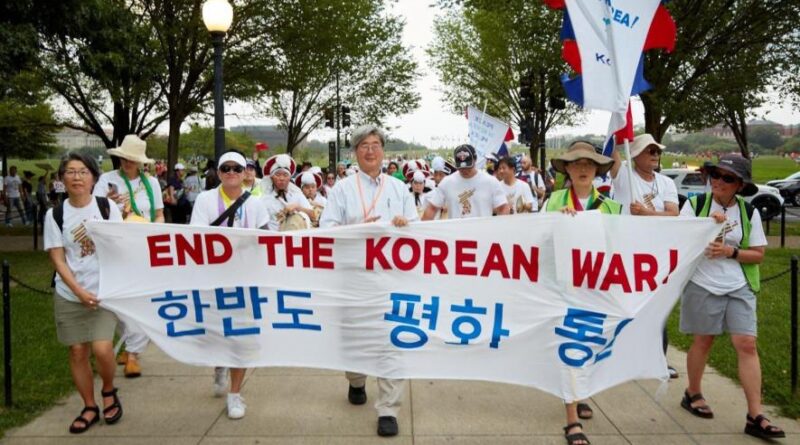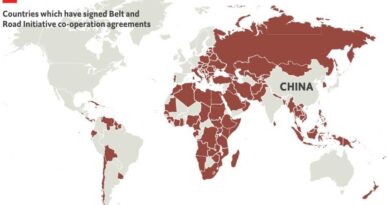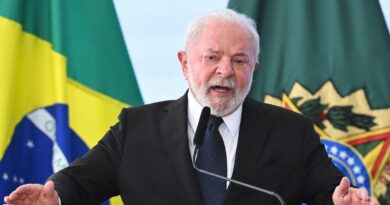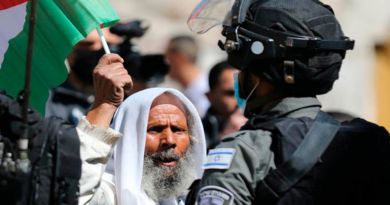Korean War Continues With Biden's Renewed North Korea Travel Ban
Draconian travel ban prevents 100.000 Koreans living in the US from visiting relatives in North Korea
AMANDA YEE
On August 22, the US State Department renewed the ban that makes it impossible for U.S. passport holders to travel to North Korea. This measure prevents 100.000 Koreans residing in the US the possibility of visiting their relatives in North Korea. It was first launched by the Trump Administration in 2017, and—despite repeated calls from Korean activists to lift it—it has been renewed every year since.
During his 2020 presidential campaign, Joe Biden promised “reunite Korean Americans separated from loved ones in North Korea for decades” but has expanded the travel ban each year he has been in office. The actual will remain valid until August 31, 2024, date on which it will be lifted or extended again.
Families separated by travel ban
Kate Younjoo Shim, activist of the feminist peace organization Korean Peace Now!, is one of many Korean Americans affected by the ban. Born in Korea, Shim immigrated to the US when she was 15 years old. Both of her parents' families are originally from North Korea, and the ban prevents her from visiting her cousins and other close relatives who live there.
Shim has highlighted the hypocrisy that characterizes the US government, which lectures North Korea on human rights while keeping so many Korean family members separated.
"For me, the most serious human rights violation is not letting people see their family,” says Shim. “The U.S. government is always trying to talk about the human rights conditions in North Korea, but it doesn't let people reunite with their mothers, children, and immediate family members... There is no excuse.”
Things weren't always like this. Shim's grandmother was separated from her firstborn—Shim's uncle—during the Korean War. While living in South Korea, she tried to locate him for a long time. But she ended up emigrating to the United States in the 1980s, at the age of 65, thinking that it would be easier to look for him from there.
That same task had posed greater difficulties for him in South Korea due to the political tension between this country and its northern neighbor. Even after spending so many years ignoring her whereabouts, Shim's grandmother still held out hope that she would be reunited with her lost son. In fact, after moving to the US, she started working in a factory so she could afford to bring him gifts when she found him.
Coincidentally, Shim's family was able to locate his uncle in North Korea, and his grandmother was finally reunited with her son after 37 years. She also reunited with her brother, and would return again to the place where she was born to attend the wedding of her grandson. Shim's grandmother died more than 10 years ago. If she were still alive, she would not be able to visit her son or other members of her family because of the ban.
This is a cruel expression of American imperialist policy, and with the generation of Korean War survivors well past 80, lifting it is an increasingly urgent matter.
"My grandmother was lucky,” Shim says. “There are so many unhappy people because they can't even see their relatives… More than 70 years have passed since the signing of the ceasefire agreement, and people are dying.”
The trips to North Korea that changed lives
The ban doesn't just affect Korean Americans who want to visit relatives in North Korea. It also hinders the travel of any US passport holder there, so it vetoes de facto may be made by each cultural exchange between American and Korean citizens. These exchanges are essential to the US propaganda campaign that dehumanizes North Koreans in order to justify sanctions.
Gloria La Riva, organizer of the Coalition Act Now to Stop War and End Racism (ANSWER), has called his trips to North Korea in 1989 and 2015 “life-changing experiences.”
"I saw people and a country that are the opposite of the hysterical and demonizing images that they show us in the West,” recalls La Riva. “I met people who were considerate and kind to visitors. That's what struck me the most. When we boarded a packed train, people immediately offered us their seats, smiling.”
"“That is the real reason why the US government prohibits its citizens from visiting North Korea,” he continues. “It's the same reason the US ban on travel to Cuba has been in place for more than 60 years. The US fears that we see Koreans as friends and not enemies. “The travel ban is a denial of our right to see North Korea for ourselves.”
The end of the Korean War
The crimes that Washington has inflicted on Korea cannot be underestimated. It was the US that divided Korea along the 38th parallel in 1945, and that separated millions of families, occupied the south and threw more than 600.000 tons of bombs on the peninsula during the war. The bombing campaign was so extensive that The American pilots ran out of targets and dropped the bombs into the sea to land safely. In the course of the war, American troops devastated “about 90% of North Korea's major cities and towns", killing the 20% of its population.
In addition to the bloody massive bombing campaign, the Korean War itself was characterized by the commission of US-backed atrocities: the murder of more than 100.000 people during the Bodo League massacre in 1950, carried out by the government forces of President Syngman Rhee, installed by the US as the head of the South Korean Government; the Sinchon massacre, in which American soldiers and anti-communist South Korean troops killed more than 30.000 civilians; the No Gun Ri massacre, where the American military opened fire on civilian refugees, killing some 300 people… Taken together, America's involvement in the Korean War was nothing short of genocide.
La company The 1953 ceasefire marked the end of the fighting, but not the end of the conflict. Currently, the US still refuses to sign a peace treaty and, along with South Korea, remain at war with North Korea. Even after the signing of the armistice, the US government has maintained a strong military presence in Korea and continues aumentando the tensions between the two countries that occupy the peninsula.
South Korea remains under occupation: it hosts the largest US base abroad, and a total of 28.500 American soldiers They are stationed in the country. South Korea is also hosting the Ulchi Freedom Shield annual joint military exercises with the USA. These simulate the invasion of North Korea and include live-fire attack practice from air, sea, land and space.
The war games represent a dress rehearsal for regime change in North Korea. And, especially since 2006, the US government, along with the United Nations Security Council, has relied on a brutal sanctions regime to punish the North Korean regime for challenging US imperialism. Such sanctions have caused food insecurity, malnutrition and shortages of medical supplies in the country, causing enormous suffering and thousands of foreseeable deaths.
For Washington, therefore, the travel ban is another weapon of war, as well as part of a broader strategy to further isolate North Korea and exacerbate tensions between the two halves of the peninsula. And with the US forging stronger military ties with Australia, Philippines and other countries of the “Indo-Pacific”, as well as making efforts to militarize the South China Sea, the Pentagon's ultimate goal is to secure South Korea as an ally on its path to a major conflict between great powers in Asia.
"“We are witnessing a period of extreme tension in Korea,” explains Ju-Hyun Park, organizer of the non-profit organization Nodutnol for Korean Community Development, which advocates for the reunification of the country. “The US does not want to do anything to reduce tension because the current situation is beneficial to its interests. The greater the conflict in Korea, the easier it will be to corral South Korea and Japan into an alliance not only against North Korea, but also, ultimately, against China and Russia.”
The path Washington is leading the two Koreas down will only cause more war and devastation for the Korean people. The US Government has never wanted peace on the Korean Peninsula. For more than 70 years, he has done everything in his power to divide the two republics and obstruct any and all paths to lasting peace.
The US Government will never be able to pay the people of Korea what it owes them. But the path to justice begins with the lifting of the travel ban on North Korea, along with the signing of a peace treaty to officially end the Korean War.
Amanda Yee is a writer based in Brooklyn. Editor of Liberation News and the podcast Radio Free Amanda. This article is published in collaboration with Globetrotter









